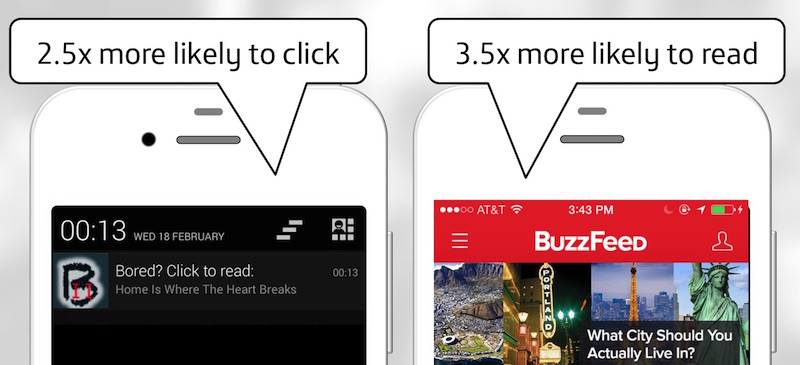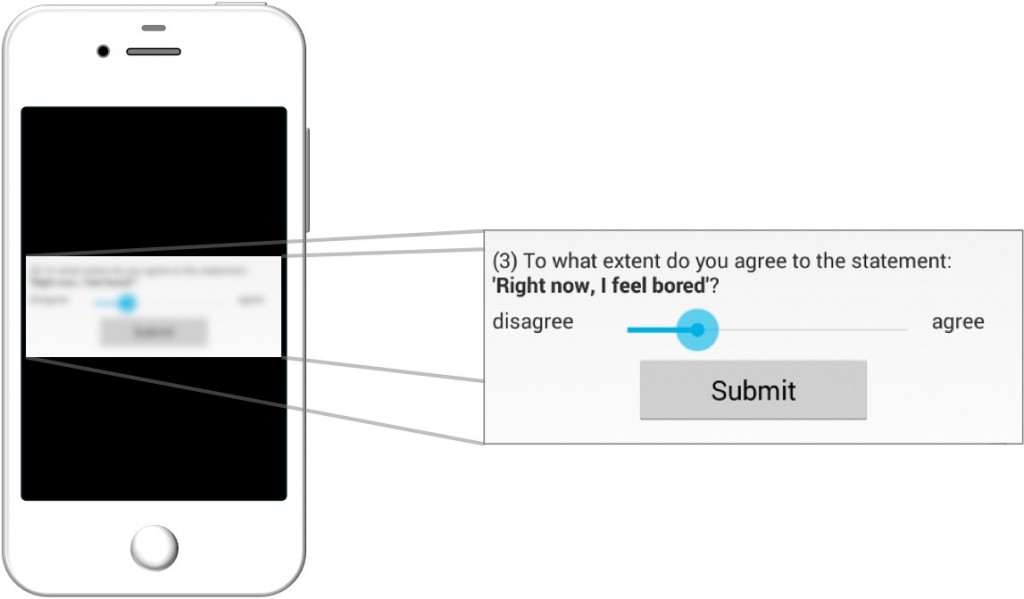In times of information overload, attention has become a limiting factor in the way we consume information. Hence, researchers suggested to treat attention as a scarce resource coined the phrase attention economy. Given that attention is also what pays the bills of many free internet services through ads, some even speak of the Attention War. Soon, this war may start extending to our mobile devices, where already today, apps try to engage you through proactive push notifications.
Yet, attention is not always scarce. When being bored, attention is abundant, and people often turn to their phones to kill time. So, wouldn’t it be great if more services sought your attention when you are bored and left you alone when you were busy?
Since mobile phones are often used to kill time, we — that’s Tilman Dinger from the hciLab of the University of Stuttgart, and Jose San Pedro Wandelmer, Nuria Oliver, and me from Telefonica’s scientific group — saw an opportunity in detecting those moments automatically. If phones knew when their users are killing time, maybe they could suggest them to make better use of the moment.
To identify, which usage patterns are indicative for boredom, we logged phone usage patterns of 54 volunteers for 2 weeks. At the same time, we asked them to frequently report how bored they felt. We found that patterns around the recency of communication activity, context, demographics, and phone usage intensity were related to boredom.
These patterns allow us to create a model that predicts when a person is more bored than usual with an AUCROC of 74.5%. It achieves a precision of over 62%, when its sensitivity is tuned detecting 50% of the boredom episodes.
While this is far from perfect, we proved its effectiveness in a follow-up study: we created an app (available on Google Play, more info here) that, at random times, created notifications, which suggest to read news articles.
When predicted bored, the participants opened those articles in over 20% of the cases and kept reading the article for more than 30 seconds in 15% of the cases. In contrast, when they were not bored, they opened the article in only 8% of the cases and kept reading it for more than 30 seconds in only 4% of the cases.

Statistical analysis shows that the predicting accounts for significant share of the observed increase.
While we certainly don’t feel that recommending Buzzfeed articles will be the cure peoples’ boredom, at least not for the majority of them, the study provides evidence that the prediction works.
Now how can mobile phones better serve users, when they can detect phases of boredom? We see four application scenarios:
- Engage users with relevant contents to mitigate boredom,
- Shield users from non-important interruptions when not bored,
- Propose useful but not necessarily boredom-curing activities, such as clearing a backlog of To Do’s or revisiting vocabulary lists, and
- Suggest to stop killing time with the phone and embrace boredom, as it is essential to creative processes and self-reflection.
Relatedly to this work, in a follow-up study, we also showed that mobile phones can predict the boredom proneness, the predisposition of experiencing boredom.
The work was presented in September 2015 at the ACM International Joint Conference on Pervasive and Ubiquitous Computing, taking place in Osaka, Japan, where it received best-paper award.
When Attention is not Scarce – Detecting Boredom from Mobile Phone Usage.
Martin Pielot, Tilman Dingler, Jose San Pedro, and Nuria Oliver
UbiComp’ 15: ACM International Joint Conference on Pervasive and Ubiquitous Computing, 2015.



